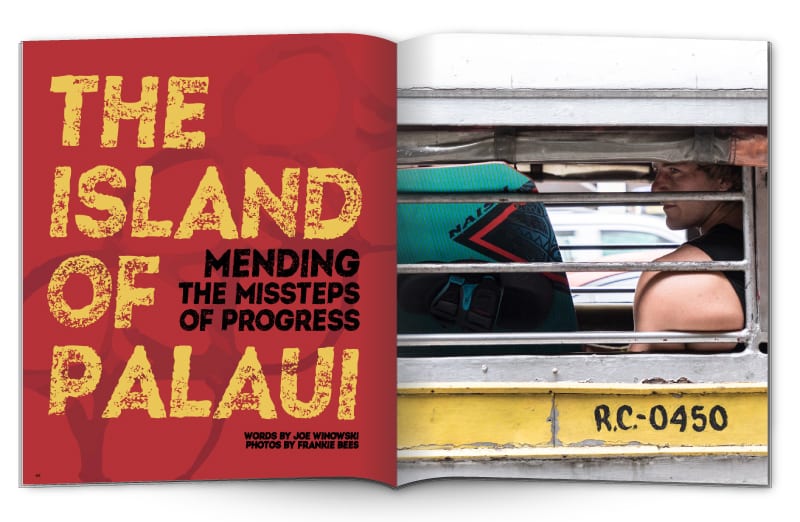Pushed by a tired workhorse of a diesel engine, a chartered coach chattering over the rough and winding pavement passed through the Cordillera mountain range, over lush passes laced with terraced farmlands and patchwork villages. Meandering through the large fertile territory that covers the northernmost quarter of the Philippine mainland, Jesse Richman peered out of a fogged window to observe from a distance the people of Cagayan Valley. From all appearances, these people lived a simple life; poverty by his western frame of reference, yet Jesse sensed proudness running throughout the community nonetheless. Amidst the shanty of rusted corrugated roofs, the yards were pristinely manicured with decorations of the Christmas season. Villagers toiled hard in rice patties and fields of tobacco while their kids played blissfully in the streets unaware that better childhoods exist.
 Accompanied by Australia’s Ewan Jaspan and native Filipino Paula Rosales, it was Paula who conceived the trip and was well acquainted with the region of Cagayan Valley, particularly their ultimate destination, the remote island of Palaui. Perched just a stone’s throw off of the northernmost tip of the mainland, Palaui is a prototypical icon of a remote paradise. Its surrounding waters have been declared a National Marine Reserve and its small villages and undeveloped shores have remained untouched and completely devoid of hotels or tourism infrastructure, so if you wanted to spend the night on the island you have to arrange a ”˜homestay’ with one of the villagers.
Accompanied by Australia’s Ewan Jaspan and native Filipino Paula Rosales, it was Paula who conceived the trip and was well acquainted with the region of Cagayan Valley, particularly their ultimate destination, the remote island of Palaui. Perched just a stone’s throw off of the northernmost tip of the mainland, Palaui is a prototypical icon of a remote paradise. Its surrounding waters have been declared a National Marine Reserve and its small villages and undeveloped shores have remained untouched and completely devoid of hotels or tourism infrastructure, so if you wanted to spend the night on the island you have to arrange a ”˜homestay’ with one of the villagers.
The only way onto the island is by boat, so once the team crammed into a small outboard hired from the mainland they set their sights on Palaui. Jesse, Ewan and Paula watched as the island unfolded before them, expanding as a layered multitude of brilliant rainforest canopy surrounded by a ring of shallow aqua-colored bays with offshore reefs protecting long, glistening white beaches. Envisioning paradise, Jesse and Ewan were shocked to find an island-wide rash of garbage floating at the mean high tide mark. They had traveled to the end of civilization in the hopes of escaping the confines of globalization and technology, and instead, found the pervasive presence of discarded junk, wrappers and single-use plastics””the rubbish of a progressive society.
This is an excerpt from Tkb’s spring 2018 issue ”” Read the rest of The Island of Palaui by subscribing to The Kiteboarder Magazine.


